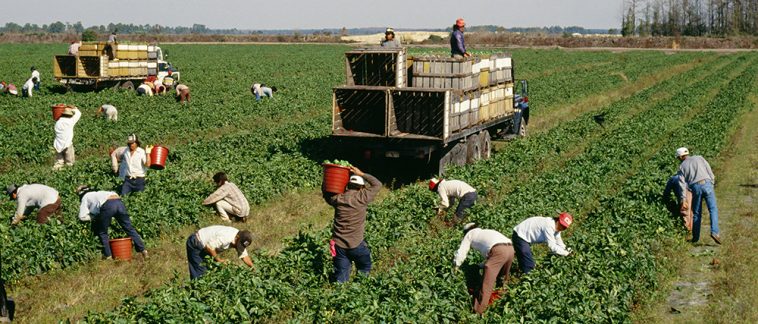Various stakeholders, including politicians, labor rights activists, and individuals from the corporate sector, have expressed disquiet about the potential impact of the impending deportation strategy formulated by the upcoming Trump administration. This blueprint is perceived as a threat to the crucial demographic of labor force involved in domestic industries. Notable among those voicing concerns is U.S. Rep. Mike Thompson, a democrat from St. Helena, who, in alliance with labor rights advocates and other politicians, has articulated apprehensions about the proposed mass deportation plan.
In Thompson’s perspective, the migrant labor force, especially farmworkers, forms the vital structure of the 4th District’s agricultural industry, a region in the North Bay that includes the agrarian areas of Napa, Sonoma, Solano, Lake, and Yolo counties. Among the laborers in this district is a woman named Anabel from Santa Rosa, who has spent half her life laboring in vineyards, tending to the plants and maintaining the landscape.
Anabel, an individual reluctant to share her full name owing to her undocumented status, immigrated to American shores when she was just a teenager. Now, three decades later, she is an established part of the U.S. workforce and a mother. Sharing her motivations and experiences, she reflects on her decision to come to America in search of a better life.
‘We built a life here, we raised children here,’ she states, emphasizing that they have invested significantly in their workplaces. It is her belief that most are unaware of the substantial reliance placed on farmworkers. The evidence of their industry and skill is recorded in the total agricultural produce of Sonoma, Napa, and Solano counties, which accumulated a value exceeding $2.5 billion in 2023, as reported by the North Bay Business Journal.
In response to President-elect Trump’s approach towards deportation and immigration policy, Thompson states that the future is uncertain. Regardless, even a notion of such actions being taken threatens to lead to a disruption in the labor force. He emphasizes the significance of agriculture by saying, ‘It isn’t just the fine wine that we enjoy at dinner—it’s the very food on our plates.’
He further warns that any potential crises will have multiple repercussions, two notable ones being the possible inability to farm and the associated increased costs for working farmers. North Bay Jobs with Justice, a local organization promoting worker’s rights, is advocating for farm labor leaders to raise their voices in protest.
Observers note that the North Bay migrant community has proactively initiated organizational measures in preparation for any developments. A spokesperson from the community has urged the several billion-dollar wine and hospitality businesses to make a choice. These establishments, which considerably rely on the expertise and labor of immigrants, are now faced with the decision to support anti-immigrant decrees or to ensure the rights and economic expectations of their workforce are met.
The spokesperson further accentuates the need to educate the immigrant community on their rights. They cite the example of the ACLU, which has already started preparing for a legal battle to safeguard those rights. It’s not only the agricultural industry in California that could face repercussions as a result of the Trump administration’s forthcoming plans but also other sectors including small business and construction.
Lisa Ann Hilario, an employment law expert, shares that her firm has been contacted by business clients expressing worries about a potential reduction in their labor force. It’s not only the working individuals at risk. Certain factions like those brought into the United States as children without proper documentation, who are temporarily protected against deportation under DACA (Deferred Action for Childhood Arrivals), may face uncertain futures.
The DACA, a protective policy established during the Obama Administration, already encounters legal opposition in the courtrooms. This program may confront a possible discontinuation under Trump’s administration. ‘We are anticipating queries from employers whose workers have theirs (Temporary Protected Status) about to expire without any prospects for renewal,’ says Hilario.
As California stands at the epicenter of this potential crisis, its Attorney General, Rob Bonta, suggests that they are gearing up for any legal challenges that may emerge. The looming deportation policy of the incoming Trump administration presents potential complications to various sectors of the U.S. economy, thus, necessitating an active discourse among stakeholders.


